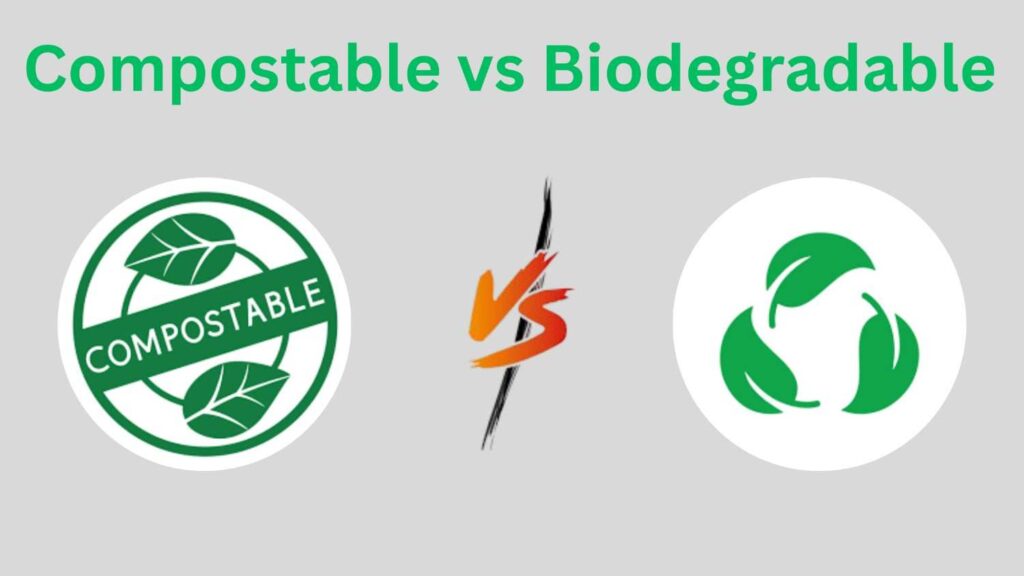We all want to make choices that are kind to our planet. And when we shop, we often see labels like “compostable” or “biodegradable.” They both sound green and eco-friendly, right? But here’s the twist: they’re not the same thing.
So, what’s the real difference between compostable vs biodegradable? Which one should you actually choose if you care about the environment, your health, and sustainability? Let’s break it down in the simplest way possible.

What Does “Biodegradable” Really Mean?
Think of biodegradable as a catch-all term. It means something can eventually break down with the help of nature—microbes, air, water, sunlight. That sounds great, but here’s the problem:
- It’s vague. There’s no set time frame. A paper napkin may biodegrade in weeks. But a “biodegradable” plastic bag? That could take decades in a landfill.
- It’s unregulated. Companies can slap “biodegradable” on products without proof.
- It can leave a mess. Some so-called biodegradable plastics don’t disappear; instead, they break into microplastics that pollute water and harm animals.
Biodegradable doesn’t always mean safe for the planet.
What Does “Compostable” Mean?
Now let’s talk about compostable—the real hero here. When you see this label, it means:
- It’s regulated. Compostable products must meet strict scientific standards.
- It breaks down fast. Usually within 90–180 days.
- It turns into healthy soil. Instead of toxic leftovers, compostable items become nutrient-rich compost that helps plants grow.
All compostable products are biodegradable, but not all biodegradable products are compostable.
Compostable vs Biodegradable: Quick Comparison
| Feature | Compostable | Biodegradable |
|---|---|---|
| Regulation | Strict, tested, certified | Vague, unregulated |
| Time to Break Down | 90–180 days | Could be months… or decades |
| End Result | Safe, nutrient-rich soil | Sometimes toxic residue or microplastics |
| Best Disposal | Compost pile or facility | Depends, often landfill |
Home Composting vs Industrial Composting
Here’s where things get tricky: not everything labeled “compostable” belongs in your backyard pile.
- Home compostable items: Fruit peels, veggie scraps, coffee grounds, paper towels, and some certified “home compostable” packaging.
- Industrial composting items: Most compostable plastics (like plant-based cups) which need high heat to break down.
Look for labels like “BPI Certified Compostable” (in the U.S.) or “OK Home Compost” (for backyard). If it doesn’t say “home compostable,” it probably needs an industrial facility.
Why “Biodegradable” Can Be Misleading
Some companies use “biodegradable” as a marketing trick, also called greenwashing. A “biodegradable” straw might just break into tiny plastic pieces, ending up in oceans and inside fish. That’s not eco-friendly at all.
This is why many U.S. states have started banning the use of “biodegradable” on single-use plastics unless companies can prove the claim.
Which One Should You Choose?
If you’re deciding between compostable vs biodegradable:
- Pick compostable. It’s regulated, safer, and actually benefits the soil.
- Avoid greenwashed biodegradable plastics. Unless you’re certain, they often aren’t planet-friendly.
- Remember the 3 R’s first: Reduce, Reuse, then Compost/Recycle. Choosing fewer disposables in the first place is the most sustainable option.
FAQs: Compostable vs Biodegradable
Also Read
